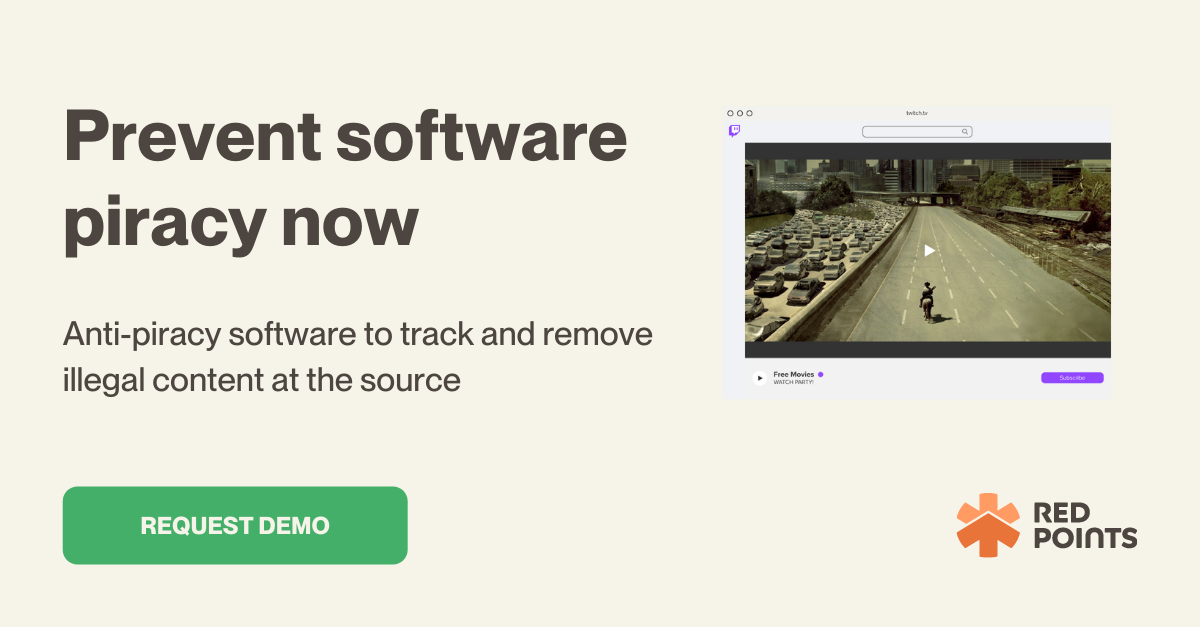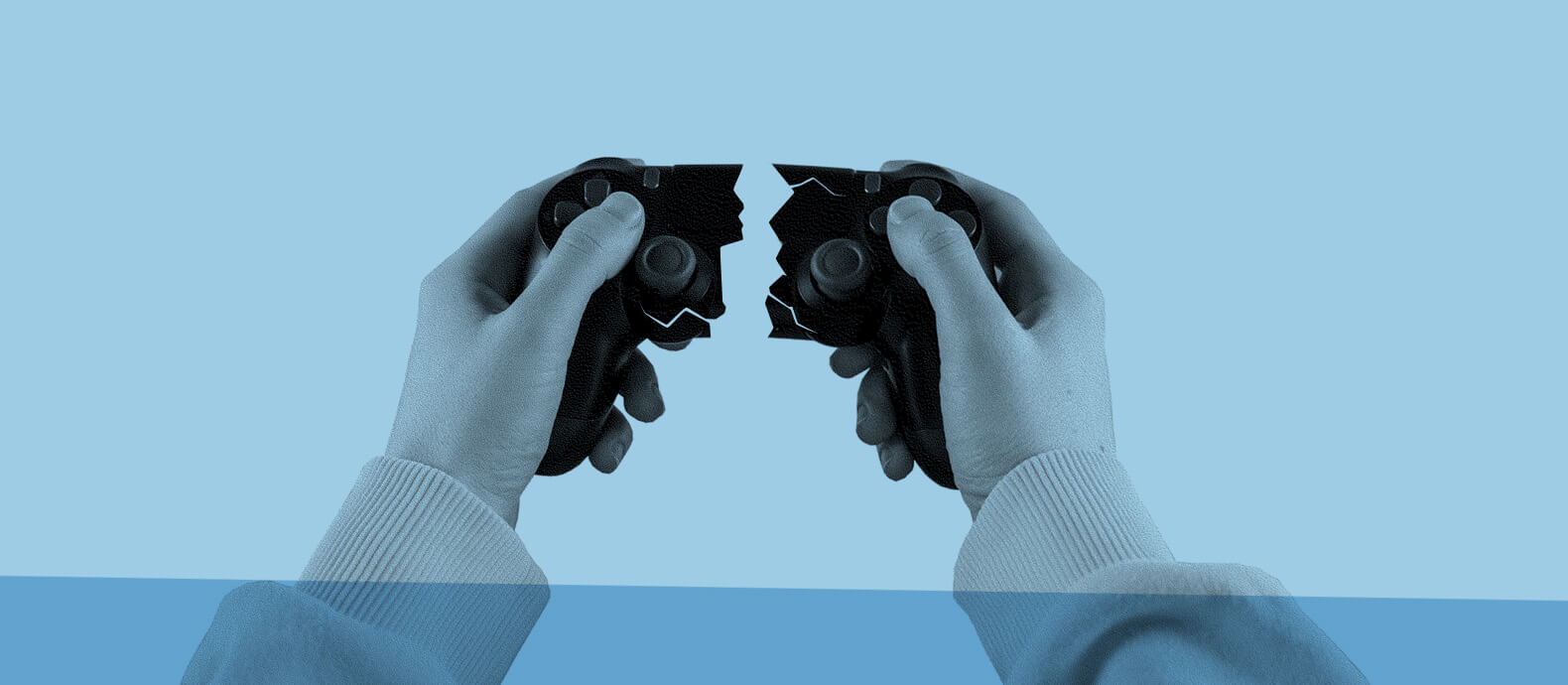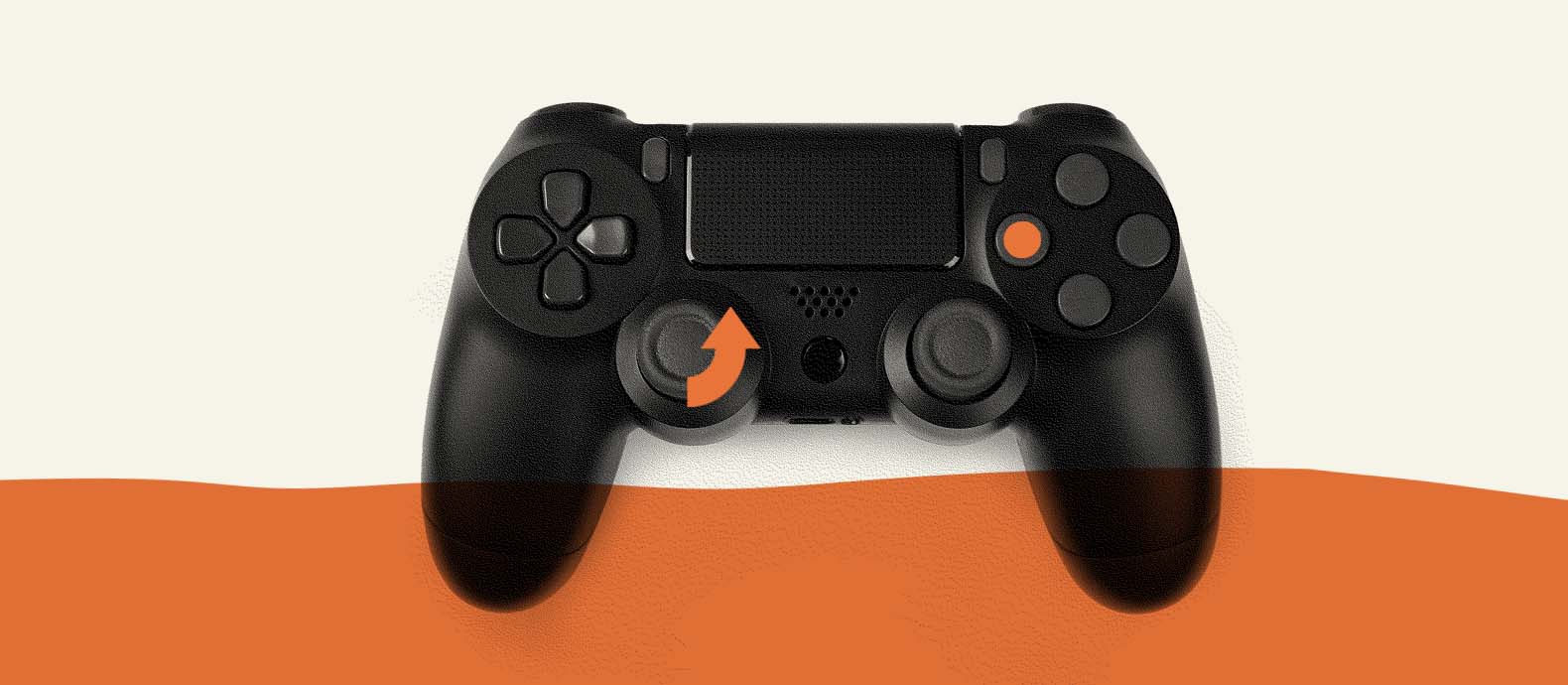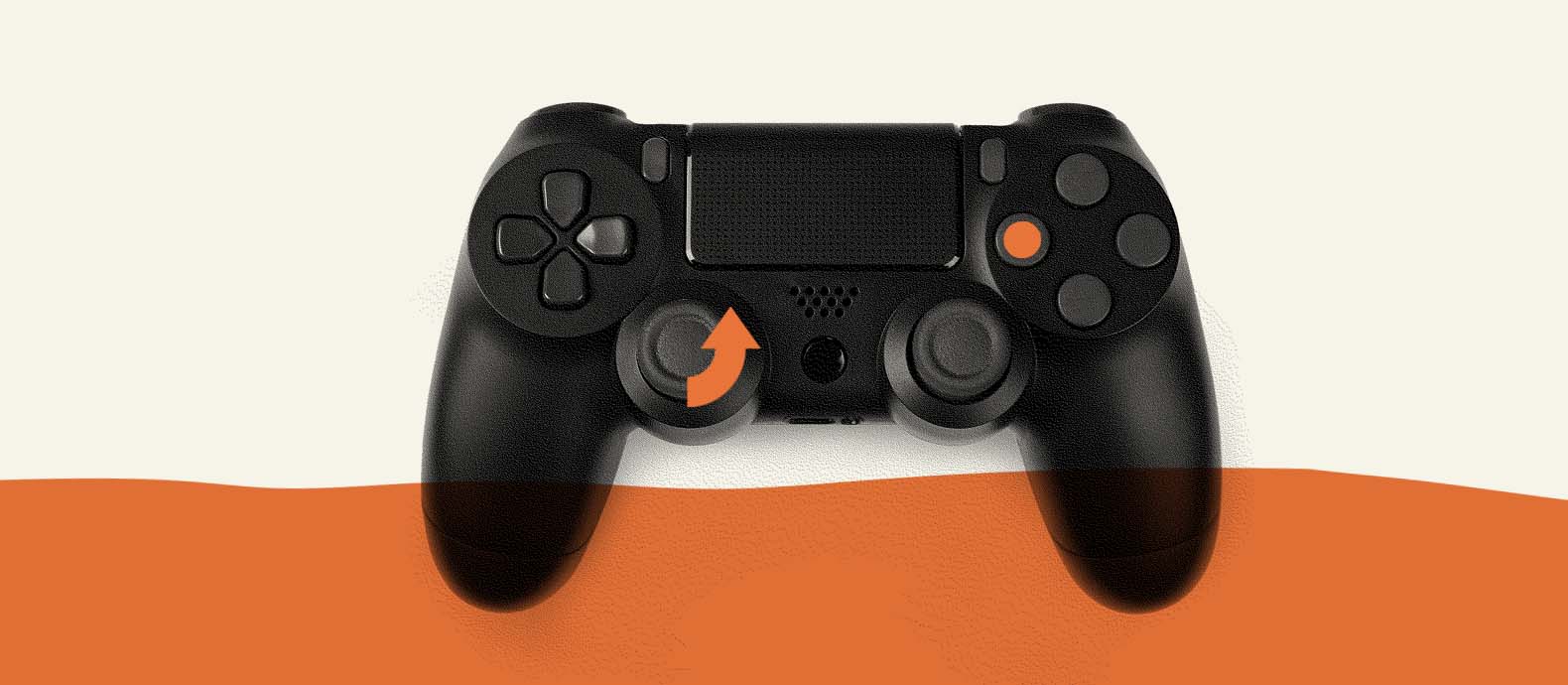Today, the global gaming industry is worth around $240 billion. With the advent of mobile, console, and PC gaming it is easier than ever to access the millions of games out there in the market.
From basic, but revolutionary, games like Pong and Tetris to ambitious artistic gaming experiences like Baldur’s Gate 3 and The Legend of Zelda: Tears of the Kingdom, gaming culture has evolved into a complex and brilliant world dependent on the skills of a variety of professionals.
Unfortunately, the popularity of gaming also attracts bad actors looking to take advantage of the amount of money and users within the industry. Gaming piracy is on the rise. About 25% of all gamers pirated more than 50 games through the years.
Piracy poses significant threats to games. It undercuts revenue, erodes reputation, jeopardizes user experience, and risks account theft or malware installation, disrupting the connection with the player base. In this blog, we’ll be highlighting all you need to know about gaming piracy by focussing on some key topics, including:
- The evolution of gaming piracy
- The cost of gaming piracy
- Why do gamers pirate in the first place?
- Navigating the legal landscape of gaming piracy
- How to effectively combat gaming piracy

The evolution of gaming piracy
Gaming piracy has come a long way from the days of selling bootleg video games out the back of the trunk and recording video and audio on cassette tapes. While gaming pirates still deal in stolen physical copies, it is far more common for them to operate online in the hopes of exploiting download codes, live-streaming, mobile apps, and user data.
- In the 1980s and 1990s, there was a centralized form of video game privacy through a bulletin board system. People would connect their personal computers to telephone modems, dial the right number, and share copies of pirated games on a dedicated server.
- In the 2000s and 2010s, as consumer-level internet started to emerge so did peer-to-peer torrenting. The establishment of protocols and sites like BitTorrent made it easier than ever to share pirated games with relative anonymity.
- In the 2020s, torrenting continues to be one of the most popular ways to share pirated games. With the rise of game marketplaces like Steam, Epic Games Store, and GOG.com, Digital Rights Management (DRM) tools became an important way to control access to copyrighted material. In response, many gaming pirates have become adept at using DRM cracking tools to bypass these anti-piracy measures and steal gaming content.
The last few years have also seen the rise of free-to-play games. These games are on all platforms but are particularly prevalent on mobile. The piracy rate for mobile games is around 95% for Android and 50%-60% for iOS. Gaming pirates have become very good at using free-to-play games to spread malicious software, steal sensitive information, and exploit young gamers.
The cost of gaming piracy
Gaming piracy impacts many businesses throughout the industry in a variety of ways. Below we’ve highlighted a few of the key direct and indirect costs that you need to look out for:
Direct
- Sales – if your game is widely pirated you will have fewer legitimate sales. This will impact your ability to generate revenue. Ultimately, low sales will limit your capacity to make exciting new games and hire the best gaming professionals.
- Microtransactions – If many gamers are playing pirated versions of your games they may be able to actively bypass your microtransactions system or miss it entirely. This will limit your game’s ability to generate revenue via in-game opportunities which will hinder your game’s financial model.
Many free-to-play games are entirely dependent on a regular influx of microtransaction revenue. Therefore, free-to-play game brands must be particularly alert to the risks of gaming piracy and implement measures to protect their microtransaction system.
- Credentials: A significant danger of pirated games is the potential for account theft. Pirates can embed mechanisms to steal user information, including login credentials for gaming platforms or even broader digital identities. Once compromised, these stolen accounts can be sold, manipulated, or used maliciously, leading to further distrust and damage to the game.
Indirect
- Reputation and brand image
If you are unable to protect your game from piracy your reputation and brand image will suffer. You may be perceived as being weak and your games will become an easy target for pirates.
Moreover, if consumers know they can easily get access to a pirated version of your game they may see little purpose in buying directly from you or engaging with your game.
- User experience
Pirated games often deliver inferior user experiences. They often lack essential updates and customer support and might contain malicious bugs, intrusive ads, and other undesired content. Assisting a user who unknowingly purchased a pirated game can strain customer service resources and lead to subsequent complaints until the root of the issue is identified.
This poor user experience will nevertheless be associated with your brand and your game. As a result, users may be deterred from interacting with your games in the future.
Why do gamers pirate in the first place?
- Access – financial and geographic
One of the main reasons gamers pirate is because they cannot access the game via legitimate channels. For example, games have become increasingly expensive in recent years. AAA games are consistently $70. This is unaffordable for many people who want to play their favorite games so they resort to paying a smaller price to pirate the game or they find ways to pirate it for free.
Similarly, some games have country or region restrictions. Geo-restricted games can be frustrating for avid gamers. It can also be annoying when there are large delays between when a game is coming from one country compared to another. Online gaming piracy removes these restrictions and allows gamers, willing to pirate, to play geo-restricted and region-delayed games almost as soon as they are released.
Another prevalent practice is purchasing games from countries where they’re priced lower, known as “grey market” buying. While it appears as a cost-saving method, it can be both legally and ethically problematic. Developers set regional prices based on factors like local economic conditions. Circumventing these prices deprives developers of intended revenue. Additionally, many game platforms discourage or even prohibit such purchases through their terms of service, leading to potential account bans.
What about Free-to-Play (F2P)?
Why would gamers pirate F2P games? Surprisingly, finances and accessibility also play a role here. For example, even with F2P, pirated versions of such games may allow users to sidestep costly in-game microtransactions.
Equally, some F2P games may be restricted to certain regions or devices. Gamers may be annoyed by such restrictions and may ultimately conclude that their only way to play the game is to pirate it.
What else drives gaming piracy?
- Direct profit
An interest in games is not a requirement for being a gaming pirate. Some pirate games just to sell them. Millions are made every year by gaming pirates because of the extensive market demand for cheap games. Gaming pirates can steal thousands of downloaded games, sell them for $10 each, and make a tremendous amount of profit in a short time frame. They can do so relatively anonymously and without risking too much.
- The opportunity to steal sensitive information
Some also use gaming piracy for more malicious purposes. When a user downloads a pirated game there is always the risk that they are also installing some malicious software that will infect their hardware, steal sensitive information, and put them in a vulnerable position.
Scammers use pirated and cracked games as a vehicle to deliver dangerous software. On iOS devices they’ll take advantage of IPA files and on Android phones they’ll make use of modified APKs, to exploit gamers who download such games. The gamers will be vulnerable to malware that has the potential to hijack their online accounts, mine crypto-currency on their mobile phones, and install backdoors that allow bad actors to wreak further havoc.
Navigating the legal landscape of gaming piracy
Gaming piracy violates copyright law. While the approach to IP law differs around the world, in most countries copyright law protects creative works like video games and patent law protects inventions. When digital pirates illegally copy, distribute, and sell your brand’s game they will most likely be contravening IP law.
In recent years, Nintendo has been one of the most proactive gaming brands when it comes to cracking down on gaming piracy. In 2023, Nintendo won a case at the Paris Court of Appeals against a site called Dstorage that was used to pirate copies of Nintendo games. In 2022, Gary Bowser was handed a 40-month jail sentence and a $15 million fine by a federal court in Washington for creating and selling devices that held pirated Nintendo games.
These cases demonstrate that courts around the world are regularly contending with issues of gaming piracy. The cases also show that gaming piracy is taken seriously by courts and that they are willing to hand down significant punishments for infringers.
Here are a few legal tools you can use to fight game piracy:
- Register your IP – Make sure you register all your relevant game assets and software at the appropriate IP office. Copyright and patents will provide your brand with legal protection for your creative works and inventions.
- Include end-user agreements in your games – An end-user agreement defines what a customer is allowed to do with your product or software. By including an end-user agreement that states that a purchaser cannot copy the game or share it with other users you will have a legal foundation to defend your IP.
- Begin legal action against gaming pirates – Ultimately, you can also pursue infringers via legal action. Suing the infringing party in civil court for intellectual property violations will allow you to stop the piracy and potentially recoup any money you have lost as a result of the piracy.
- Use an anti-piracy solution – Use automated software to track and remove illegal content at the source. Detect gaming pirates, send de-index requests, and receive customized reports that will help you learn more about how pirates are targeting your business.
To learn more about how the law around video game copyrights works, check out our article on the subject here.
How to effectively combat gaming piracy
- Educate your audience
Gamers can be your allies too. One of the best ways to combat gaming piracy is by engaging and educating your audience. Be open and clear about the threat and impact of digital piracy.
If they know how, and to what extent, piracy can damage your business they may be less likely to pirate your games. You should also be transparent and reliable when it comes to pricing, release dates, marketing, and other information about your gaming brand. This will help your audience avoid pirated games and become more engaged with your brand.
- Contact digital pirates directly
Another way to combat gaming piracy is to directly reach out to bad actors acknowledging that you are aware of their illegal activity. You could do this via a cease and desist letter to communicate the seriousness of the issue.
A cease and desist letter will allow you to assert your rights and outline how you believe the gaming pirates are infringing your game’s intellectual property (IP). It is a commonly used legal tool that can kick-start legal proceedings or deter digital pirates from targeting your gaming brand any further.
- Reporting violations to authorities and marketplaces
Reporting infringements is another common way to combat gaming piracy. If the pirates are operating their scams on major marketplaces like Steam, G2A.COM, or GOG then you can use their internal system to file a report. Remember to submit all the relevant evidence and include information about your game and your IP rights.
You can also report infringements to the relevant law enforcement body. Digital gaming piracy is a crime around the world. If you have identified that the piracy is occurring in the US you can file an FBI report to their Internet Crime Complaint Center.
- Use a digital anti-piracy solution
Red Points’ Anti Piracy Solution will provide you with the software you need to track and remove illegal content and safeguard your game’s IP. It is the ideal solution to tackle gaming piracy at the source and protect your customers. Here’s how it works:
Detect, Validate, and Delist
Red Points’ software enables you to rapidly detect and track pirated content wherever it appears online. Our automated bots crawl linking sites, cyberlocks, game marketplaces, apps, social media, streaming sites, and P2P platforms to ensure that gaming pirates have no place to hide.
You can start validating potential infringements manually or set up a workflow that allows you to automate validations based on your preferences. All infringements are automatically reported for de-listing as a first mitigation action.
Monitor, Enforce, and Measure
We empower you to start taking down digital pirates and prevent further violations. You can keep track of incidents 24/7 and get real evidence of the findings. Then, using automation rules, you can adjust the de-index and removal process to suit your brand’s anti-piracy approach.
Following enforcement you will be able to monitor and learn from your anti-piracy coverage through our accessible performance dashboards, customized reports, and real-time documentation. This will help you learn more about gaming piracy and design new strategies to protect your game from digital pirates going forward.
At Red Points, we protect over 1,200 clients with modern, automated solutions that can be tailored to suit a variety of brands. Our Anti-Piracy Protection Solution has an enforcement success rate of 93.5% and has helped us remove over $1.6 million worth of infringements.
The scope of our service encompasses social media, search engines, video platforms, live streaming, online marketplaces, app stores, linking sites, cyberlockers, IPTV, and linear channels. We will be an incisive tool across all these channels enabling you to save time and money in your search to find and take down digital gaming pirates.
What’s next
Gaming is a broad and complex landscape that is constantly evolving as tech improves year by year. Console, PC, and Mobile gaming all require different ways of thinking and each area brings its challenges. There is a constant need for creative and effective solutions.
To ensure you make use of such solutions you have to be proactive and informed. Ultimately, an automated and specialized anti-piracy solution is the best way to protect your game and your customers from gaming piracy. To evaluate your case and discover the options you have to fight against gaming piracy, talk to our experts here







